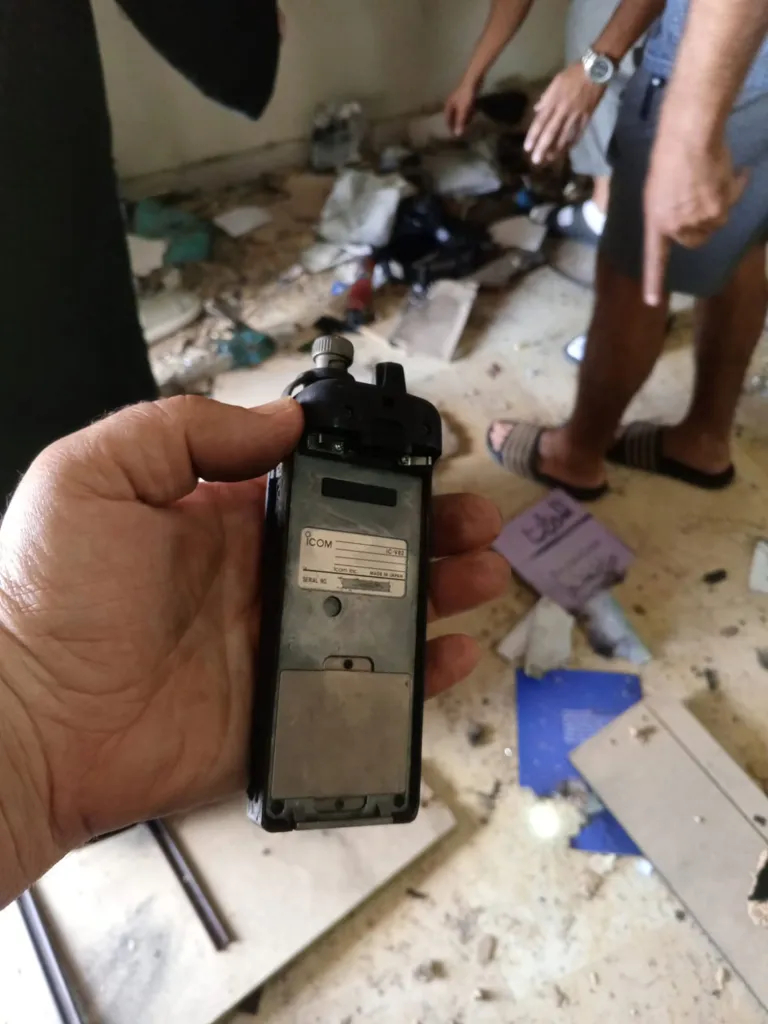
Lebanon has descended into further chaos following a second wave of deadly explosions targeting handheld wireless communication devices, just a day after similar attacks on pagers left thousands injured. The latest attack on Wednesday, September 18, has killed at least 20 people and wounded more than 450, according to updated reports from the Lebanese Ministry of Health.
The explosions of pagers on Tuesday, September 17, killed at least 12 people, with more than 2,800 injured, many critically. The following day, on September 18, a second wave of explosions involving Icom hand-held radios claimed the lives of at least 20 individuals and injured over 450 more. These attacks have left Lebanon reeling, with healthcare facilities overwhelmed by the sheer number of victims. Combined, these incidents have resulted in at least 32 deaths and more than 3,250 injuries over two days.
The attacks, reported across several regions, including the southern suburbs of Beirut, Baalbek, Zahle, and Marjeyoun, involved Icom V82 two-way radios. The Lebanese National News Agency described the incidents as a “cyber-attack” on unlicensed and unauthorized communication devices. Fires erupted in homes and public areas as the radios detonated, compounding the already significant destruction.
The Ministry of Telecommunications confirmed that security services did not officially license or approve the radios. They stated that the radios involved in Wednesday’s explosions were purchased through unauthorized channels, raising concerns about their safety and origin.
Similar to the previous attack, many of the victims were Hezbollah members. The Health Ministry confirmed that more than 300 people remain in critical condition from Tuesday’s explosions, suffering from severe facial injuries and brain hemorrhages. Hospitals across Lebanon have been inundated, with 460 victims requiring surgeries, including amputations.
Hezbollah has accused Israel of orchestrating both attacks, citing its history of covert operations in the region. Lebanese security sources and international reports suggest that Israeli intelligence agents planted explosives inside the communication devices, which Hezbollah had purchased five months earlier. The New York Times revealed that small amounts of explosives were hidden inside the devices’ batteries and were detonated remotely.
While Hezbollah has vowed retaliation, Israeli officials have remained largely silent. Prime Minister Benjamin Netanyahu disavowed a post by his adviser on social media that hinted at Israel’s involvement in the bombings. Nevertheless, tensions between Hezbollah and Israel have escalated sharply, with both sides preparing for possible further conflict.
Questions have been raised regarding the authenticity of the devices involved in Wednesday’s explosions. Ray Novak, a senior sales manager at Icom America, told The Associated Press that the radios involved were likely counterfeit. He pointed out that the V82 model had been discontinued years ago and expressed skepticism that authentic Icom products could have been tampered with to include explosives. He noted that counterfeit versions of the device are easily found online.
The back-to-back bombings have left Lebanon in a state of terror, with fears of more attacks gripping the public. Hezbollah is conducting internal investigations into the incidents, while hospitals remain overwhelmed by the influx of injured victims.








